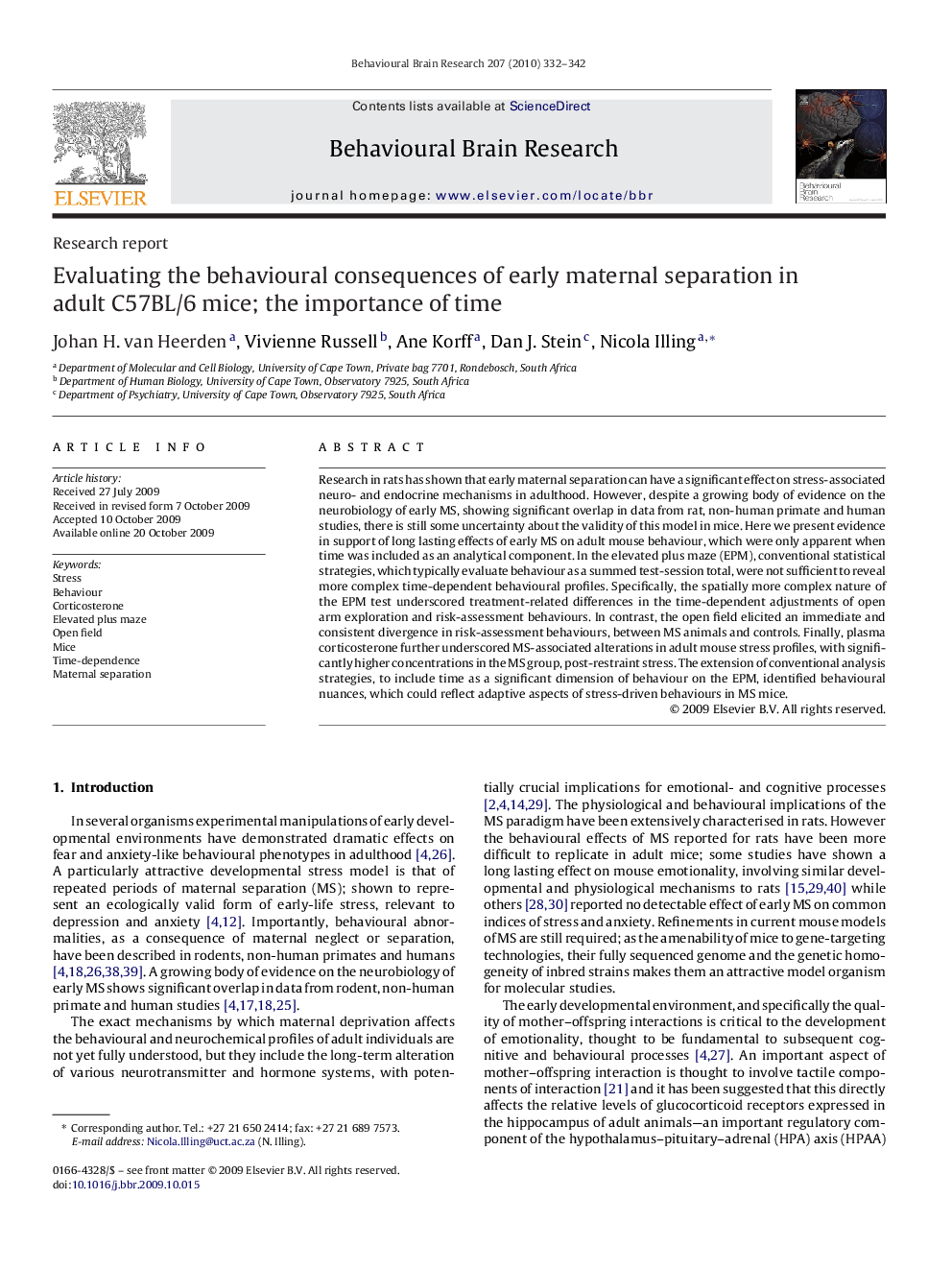| Article ID | Journal | Published Year | Pages | File Type |
|---|---|---|---|---|
| 4314474 | Behavioural Brain Research | 2010 | 11 Pages |
Research in rats has shown that early maternal separation can have a significant effect on stress-associated neuro- and endocrine mechanisms in adulthood. However, despite a growing body of evidence on the neurobiology of early MS, showing significant overlap in data from rat, non-human primate and human studies, there is still some uncertainty about the validity of this model in mice. Here we present evidence in support of long lasting effects of early MS on adult mouse behaviour, which were only apparent when time was included as an analytical component. In the elevated plus maze (EPM), conventional statistical strategies, which typically evaluate behaviour as a summed test-session total, were not sufficient to reveal more complex time-dependent behavioural profiles. Specifically, the spatially more complex nature of the EPM test underscored treatment-related differences in the time-dependent adjustments of open arm exploration and risk-assessment behaviours. In contrast, the open field elicited an immediate and consistent divergence in risk-assessment behaviours, between MS animals and controls. Finally, plasma corticosterone further underscored MS-associated alterations in adult mouse stress profiles, with significantly higher concentrations in the MS group, post-restraint stress. The extension of conventional analysis strategies, to include time as a significant dimension of behaviour on the EPM, identified behavioural nuances, which could reflect adaptive aspects of stress-driven behaviours in MS mice.
